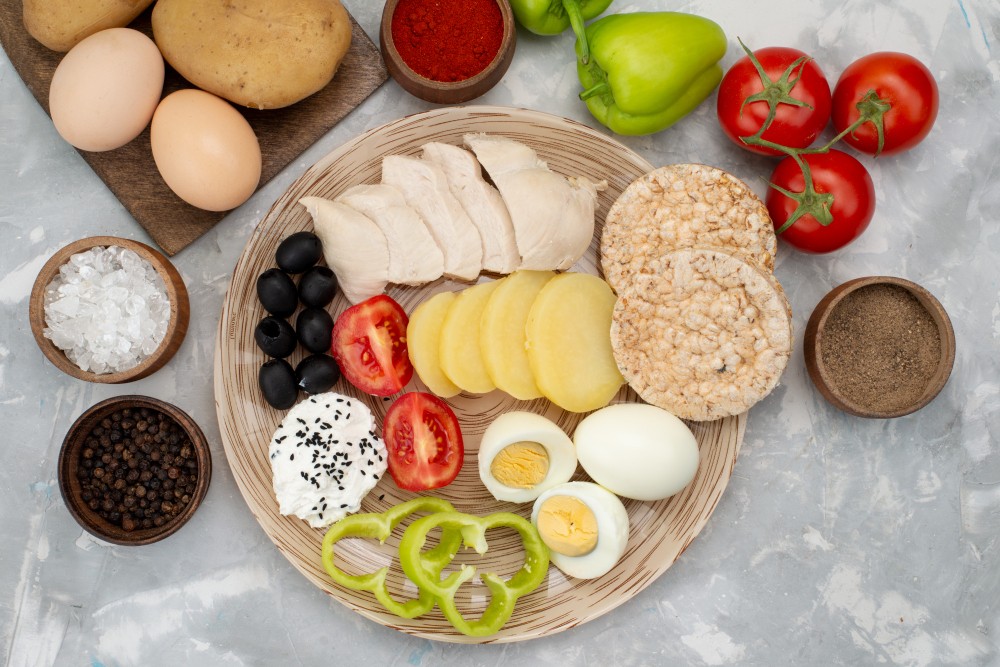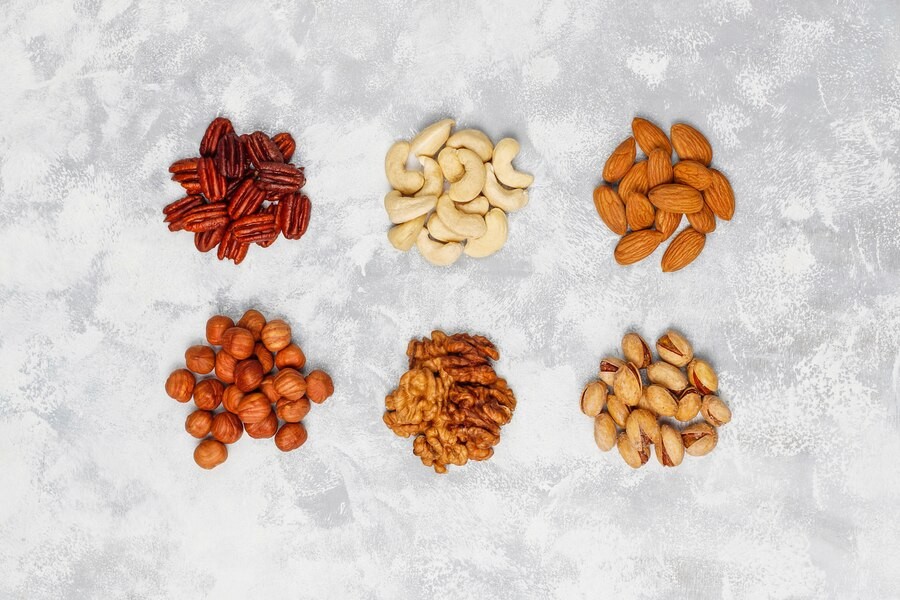Mengonsumsi protein bisa membantu Anda menurunkan berat badan. Protein bisa membantu pembakaran kalori dan mengurangi nafsu makan sehingga mendorong penurunan berat badan. Lalu bagaimana jika Anda sudah mengonsumsi protein tinggi namun berat badan tidak juga turun? Simak penyebab dan cara mengatasinya dalam artikel berikut.
Kesalahan Dalam Diet Protein Tinggi
Untuk menurunkan berat badan, Anda perlu mengombinasikan pengaturan pola makan dan olahraga rutin. Dalam mengatur pola makan, Anda dianjurkan mengonsumsi makanan yang banyak mengandung protein.
Manfaat mengonsumsi protein dalam program penurunan berat badan antara lain:
- Membantu meregulasi hormon kenyang yang mencegah nafsu makan berlebih
- Mengurangi rasa lapar dan membuat Anda mengonsumsi kalori lebih sedikit
- Membantu membakar kalori lebih banyak
Namun jika Anda sudah mengonsumsi protein dan berat badan belum juga turun, Anda mungkin melakukan beberapa kesalahan dalam diet seperti berikut:
Anda tidak melakukan kalori defisit
Mengosumsi protein berarti memperbanyak asupan protein nabati dan hewani. Dalam mengonsumsi protein hewani, banyak orang lupa bahwa makanan tersebut juga mengandung kalori.
Jika Anda mengonsumsi kalori berlebih, maka kalori tersebut akan menjadi lemak. Meski mengonsumsi protein dapat mengurangi rasa lapar dan meningkatkan metabolisme, tetapi program penurunan berat badan Anda akan gagal jika asupan kalori yang masuk lebih banyak dari kalori yang dibakar.
Baca Juga: Benarkah Diet Rendah Gula Membuat Wajah Awet Muda?
Anda makan karbohidrat berlebihan
Saat diet untuk menurunkan berat badan, umumnya orang akan mengurangi karbohidrat dan memperbanyak protein. Membatasi karbohdirat dapat membuat keinginan untuk mengonsumsi karbohidrat semakin meningkat. Ketika ada kesempatan untuk mengonsumsi karbohidrat, Anda cenderung mengonsumsinya berlebihan. Inilah yang meningkatkan risiko berat badan Anda sulit turun.
Anda kurang mengonsumsi serat
Untuk mengimbangi diet protein tinggi dan rendah karbohidrat, Anda juga perlu mencukupi kebutuhan serat tubuh. Serat membantu menyerap cairan sehingga membuat Anda lebih kenyang dan menjaga saluran pencernaan.
Selain mengonsumsi makanan protein tinggi seperti telur, daging ayam, dan daging sapi, Anda juga perlu mengonsumsi buah, sayuran dan biji-bijian utuh sebagai sumber serat.
Baca Juga: Diet Rainbow, Diet Berdasarkan Warna Makanan
Olahraga tidak teratur
Dalam program penurunan berat badan, mengurangi karbohidrat dan memperbanyak protein juga perlu diimbangi dengan olahraga rutin. Lakukan olahraga rutin setidaknya 150 menit per minggu.
Anda bisa memilih olahraga angkat beban atau latihan ketahanan untuk membantu pembakaran kalori dan penurunan berat badan lebih cepat. Konsultasikan dengan dokter atau personal trainer untuk menentukan jenis olahraga yang sesuai dengan kondisi kesehatan Anda.
Anda mengonsumsi minuman manis berlebihan
Meski telah mengatur pola makan sedemikian rupa, namun jika tanpa disadari Anda mengonsumsi minuman manis dengan gula berlebih, hal ini dapat mengacaukan program penurunan berat badan. Sebaiknya hindari minum minuman kemasan atau minuman manis lainnya yang mengandung gula berlebih.
Proses penurunan berat badan bagi setiap orang berbeda-beda dan tidak selalu mudah. Sebagai langkah awal, Anda bisa mencoba menurunkan berat badan dengan mengubah pola makan menjadi pola makan gizi seimbang, kaya serat, dan protein, serta rendah lemak dan karbohidrat. Imbagi pengaturan pola makan dengan rutin olahraga, perbanyak minum air putih, cukup tidur, dan pengelolaan stres yang baik.
Jika membutuhkan informasi seputar penurunan berat badan Anda bisa berkonsultasi dengan ahli gizi atau dokter. Anda juga bisa memanfaatkan fitur konsultasi yang terdapat pada aplikasi Ai Care yang bisa diunduh melalui App Store dan Play Store.
Mau tahu informasi seputar penyakit lainnya? Cek di sini, ya!
- dr Nadia Opmalina
Pai, D. (2024). Can Eating More Protein Help You Lose Weight? Here's What the Science Says. Available from: https://www.eatingwell.com/article/7913417/can-eating-more-protein-help-you-lose-weight/
Gunnars, K. (2024). How Protein Can Help You Lose Weight Naturally. Available from: https://www.healthline.com/nutrition/how-protein-can-help-you-lose-weight#
Gunnars, K. (2023). 14 Common Reasons You’re Not Losing as Much Weight as You Expected. Available from: https://www.healthline.com/nutrition/20-reasons-you-are-not-losing-weight
Cohen, J. (2023). Why Am I Not Losing Weight?. Available from: https://www.health.com/weight-loss/working-out-and-still-not-losing-weight-here-are-7-reasons-why












